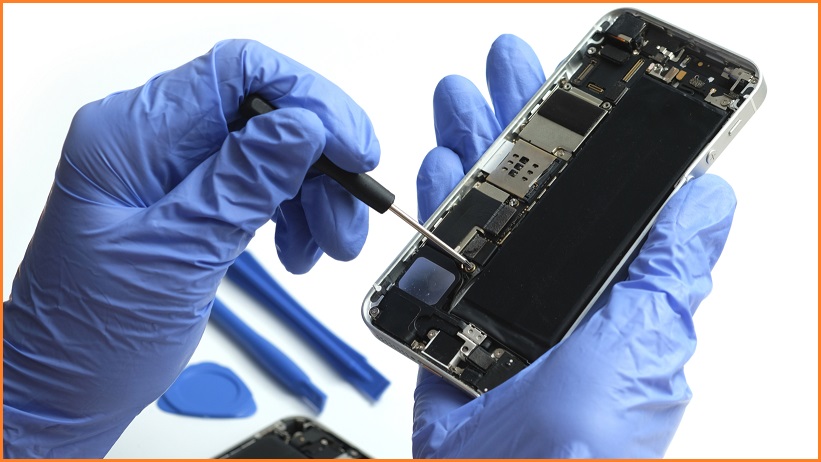Electronics manufacturers could be forced to let third-party repairers access proprietary software ecosystems, as the Productivity Commission kicks off an inquiry considering how a potential ‘right to repair’ might operate in an era where software smarts are becoming ubiquitous in long-life consumer products.
Due to deliver a final report by October 2021, the inquiry will explore the regulatory and manufacturer imposed-barriers to accessing repair services – including the role of embedded software, intellectual property and commercially-sensitive knowledge in limiting access to repairs.
A ‘right to repair’ “relates to the ability of consumers to have their products repaired at a competitive price by the repairer of their choice”, the commission notes.
“We have been asked to look at the barriers and enablers of competition in repair markets and the costs and benefits of a regulated ‘right to repair’,” the commission notes, “including facilitating access to embedded software in consumer and other goods.”
Investigations will focus on high-cost durable goods – such as motor vehicles and household appliances – whose relatively high cost and infrequent replacement makes their owners most likely to encounter the limitations of existing repair policies.
The inquiry will explore the potential limitations of the Australian Consumer Law (ACL), which imbues all consumers with certain rights around product purchase and stewardship, and will consider whether that legislation needs to be tweaked to remedy any issues identified during the inquiry.
Submissions to the enquiry are being solicited through 1 February to gauge the impact of current repair policies, both in terms of limiting competition for the supply of repair services and in terms of the environmental impact of obsolete and unrepairable products.
“Concerns have been raised around the world that repairs of consumer products are becoming more difficult (sometimes impossible),” the issues paper notes, “and that this is resulting in costly and wasteful outcomes for both consumers and broader society.”
_____________________________________________________________________________________________________
Do you believe 'Right to Repair' is an issue ACS should be involved in?
We'd love to hear your thoughts in our quick survey!
_____________________________________________________________________________________________________
Repairing the unrepairable
Although specifically targeted at physical goods rather than software, broad integration of software into high-tech consumer goods – such as that enabling remote control from smartphones or integration with Internet services – can “blur the line between a physical product and an intangible good”, the paper notes.
The “added repair complexities” of goods with proprietary technology and embedded software made them particularly important as a target for the investigation, as did the “variety of concerns” around consumers electronics such as smartphones and computers.
The commission will focus on unnecessary regulatory or manufacturer-imposed barriers “due to market failures or poor regulatory design”, the paper notes, highlighting the degree to which market power “can impede competition in repair markets and distort consumer decisions.”
The Commission will also explore the impact of e-waste and other waste on the environment and community, particularly relating to the effect of premature and planned product obsolescence.
Although it’s too early for the Productivity Commission to forecast the outcome of the enquiry, it flagged a number of overseas remedies that might be introduced in Australia as part of a legislated ‘right to repair’.
These include a mandatory ‘duty to deal’ – in which manufacturers would be required to give independent repairers “fair access” to the parts and tools they need to repair products; obligations to keep producing spare parts for a longer period than the “reasonable” time specified in the ACL; product information and labelling requirements highlighting product repairability and durability; and laws preventing planned product obsolescence.
The commission also pointed to the possibility of enforceable product design standards requiring easy product disassembly – as contained in the EU Ecodesign directive.
This could have particular implications in the software industry, where normal lockdowns on proprietary systems are driving the growth of ‘repair cafes’ and networks of “self-repair hobbyists” who tackle the repairs themselves.
Manufacturers have traditionally expressed concerns that broader access to their code could raise issues around consumer safety, data security risks, repair quality, and protection of intellectual property.
_____________________________________________________________________________________________________
Do you believe 'Right to Repair' is an issue ACS should be involved in?
We'd love to hear your thoughts in our quick survey. Click here to access.
_____________________________________________________________________________________________________










